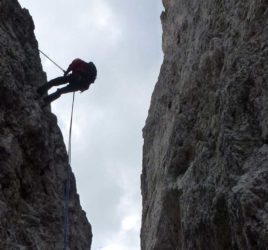Diversity of Thought
By Jon F. Merz
Three things have happened this week that have led me to write this blog post. On Monday, I was honored to once again be a guest on the Provocative Thoughts and Positive Vibes radio show hosted by my friends Tommy and Lois. Tuesday, we got some new neighbors. And last night, I started reading the book “Abundance: The Future is Better Than You Think” by Peter Diamandis and Steven Kotler. These three things might seem to have nothing in common, but, in fact, they do.
And the thread that binds them all together is this notion of diversity.
On the radio show Monday, Tommy, Lois, and I were discussing how with the advent of ebooks and technology, the world is inherently much more connected – things that were once only local are now global. Each day, the opportunity exists to reach out and connect with someone clear across the world via Facebook, Twitter, a blog post, etc. In my industry – entertainment – this means I can reach new audiences with my work. But this global environment isn’t just a one-way street; it’s an every-way street. And as much as I am able to spread my “ideas,” so too am I able to receive new ideas from other people, places, and cultures.
Tuesday, we found out that we have new neighbors. The suburban town I live in currently is largely white. We’re about twenty miles outside of Boston and while there are minority groups represented here, the town is overwhelming Caucasian. When we moved here in 2004, my wife was one of the few Asians in town. We now enjoy a greater mix of races and ethnicity, but the town is still easily 80% white. So whenever we find out that there’s a bit more range to the spectrum, we get excited. Such was the case with our new neighbors, who happen to be two lesbians and their three children. More range to the spectrum!
Finally, in reading Abundance (and I’ve only just started it) last night, the overriding theme of the book – at least at this point – seems to be that the future can be incredible, but only if we embrace diversity. The way kids are taught these days is somewhat backward in that math and science are given utmost importance while creativity and critical thought are not. This needs to change because the planet faces some very serious problems that will only be solved by people who have the ability to critically examine problems and creatively come up with solutions that benefit us all.
Diversity scares a lot of people, though. And given that we’re in the midst of another presidential election process here in the United States, the two parties at play are hard at work drumming up the most base instincts of potential voters with fear of one kind or another. I always find it interesting to see how people react to such tactics and what their reactions tell me about who they are as people – and in the case of those who study martial ways, who they are as warriors.
There’s an admonition in the martial art lineage I study called “Banpen Fugyo,” and it means “Ten thousand changes, no surprises.” There are many who think that the meaning behind the admonition is enough to understand: that you should always expect things to change and therefore not be surprised when change occurs. But like so many other aspects of Japanese culture, there is both an omote (outer) meaning and an ura (inner) meaning and only thinking about the obvious meaning of Banpen Fugyo cuts the lesson short and deprives the practitioner of a chance to expand their comprehension of it.
To me, the ura meaning behind Banpen Fugyo isn’t that the practitioner be alert to changes in the midst of combat; it’s that the practitioner understand that diversity in combat is nothing to be scared of, provided they are secure enough in who they are as warriors. Does it really matter if your opponent punches or kicks you? Or swings a baseball at your head or stabs at you with a knife? If you’ve trained long enough and hard enough, it won’t matter. You’ll respond with the appropriate technique and end the conflict. As a result of first opening yourself up to the range of technical tools available in the martial lineage you might study, you have an endless variety to choose from. Experience and personal evolution will help teach you how to properly respond at the right moment.
Can you imagine entering a dojo and telling the instructor you only want to learn how to defend yourself against a roundhouse kick? And then you only want to learn a single technique for doing so? Why wold you limit yourself in that way? Why would you set your life up so that it’s only possible to be successful if a strict set of parameters are met?
But there are plenty of examples of martial artists who do just that. They espouse their style as the only “true” way to deal with attackers. They insult other styles, other techniques. They claim they train harder than everyone else. Or that this technique is the only way to properly defend against this particular attack. Most, if not all, of these claims stem from insecurity.
Conversely, the practitioners who are secure in their abilities – they know what they can do and (equally important) what they cannot do – are often the most open to diversity of technique. They are open to discussing new ideas on how to handle new threats to security. They don’t insult other styles. They freely exchange ideas with others. As a result, they are better martial artists.
Extrapolate that further and the true meaning of Banpen Fugyo might just be that practitioners walking the path need to be open to diversity not only in martial arts, but also in life.
But that’s difficult.
In the political arena especially, candidates and their surrogates take great pains to divide and conquer. They paint their opponent as the guy who wants to come in and do all sorts of horrible nasty things to the country, the belief system the party espouses, and the voters themselves. They do so by crafting their messages and advertisements with trigger points that are carefully calculated to cause fear. Fear is obviously one of our most primal base emotions. Everyone has been scared before. Fear takes no thought. It’s easy. And in the crowded media world where messages and sound bites have scant time to register before the next message comes hurtling in, fear is the one thing that works better than others.
Political parties don’t want you to embrace diversity because it makes you harder to effectively cajole into voting for their candidate. Political parties want you to avoid diversity and confine yourself and your thoughts to a very strict set of parameters. Once they pigeonhole you, they can effectively market to you because they know exactly how you’ll react if they hit this or that trigger point. Then they just repeat the message over and over and over and over and over again until you adopt that talking point as one of your own.
There are no parameters in combat. Anything can happen. Anything will happen. There is so much diversity in combat that it’s impossible to account for it all. A true warrior understands this and takes pains to learn as many techniques as possible from as many sources as possible and temper those lessons with as many experiences as possible. The more expansive a spectrum of martial skill a warrior has, the better chance they have of coming out of a hostile encounter alive. That guy who only wanted to learn one technique for defending against a roundhouse kick back up there in paragraph 9? He’s already dead by now.
In the same way, life does not confine itself to a narrow set of parameters, either. Life exists everywhere on this planet and presumably beyond. Life exists in environments never thought capable of sustaining it previously. Given the opportunity – any opportunity – life flourishes and the ecosystem is richer for it. Why would you choose to live your life constrained by a narrow set of guidelines or parameters or a belief system?
The time we exist in now – the day before you now – is filled with incredible potential from an infinite number of sources, people, cultures, and experiences. The number of opportunities – the chances to flourish – before each of us is infinite.
But you’ll only see them if you embrace diversity.



